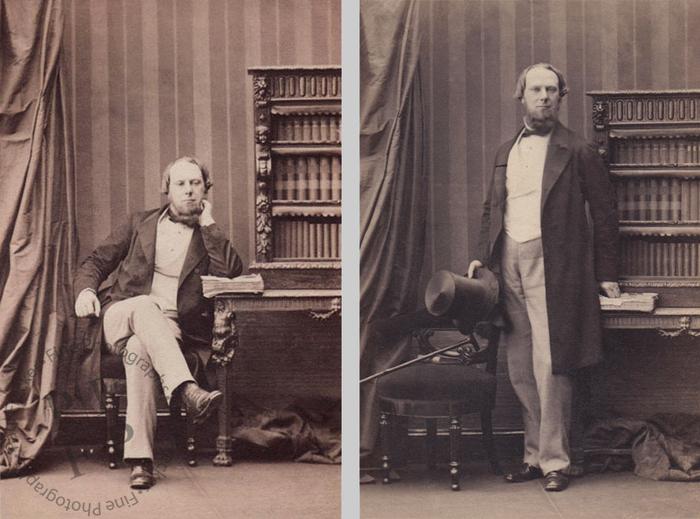Lord Wodehouse
(1826-1902)
31 May 1861
Volume 3, page 340, sitting number 4043.
Born John Wodehouse on 7 January 1826 at Wymondham in Norfolk, he was the son of Henry Wodehouse (died 1834) and grandson of John Wodehouse, 2nd Baron Wodehouse. He succeeded his grandfather as 3rd Baron Wodehouse on 29 May 1846.
He was by inheritance a Liberal in politics, and in 1852-1856 and 1859-1861 he was Under-Secretary of State for Foreign Affairs in Lord Aberdeen's and Lord Palmerston's ministries. In the interval (1856-1858) he was envoy-extraordinary to Russia and in 1863 he was sent on a special mission to Copenhagen in the forlorn hope of finding a peaceful solution to the Schleswig-Holstein question. Inevitably, the mission was a failure.
In 1864 he became Under-Secretary of State for India, but towards the end of the year he was made Lord Lieutenant of Ireland. In that capacity he had to grapple with the first manifestations of Fenianism, and in recognition of his vigour and success he was created Earl of Kimberley in 1866. In July of that year he vacated his office with the fall of Lord Russell's ministry, but in 1868 he became Lord Privy Seal in Gladstone's cabinet, and in July 1870 was transferred from that post to be Secretary of State for the Colonies. It was the period of the great diamond discoveries in South Africa and the new town of Kimberley was named after the Colonial Secretary of the day.
After an interval in opposition from 1874 to 1880, Lord Kimberley returned to the Colonial Office in Gladstone's next ministry; but at the end of 1882 he exchanged this office first for that of Chancellor of the Duchy of Lancaster and then for the secretaryship of state for India, a post he retained during the remainder of Gladstone's tenure of power.
In Lord Rosebery's cabinet (1894-1895) he served as Foreign Secretary. During this time he signed the landmark Anglo-Japanese Treaty of Commerce and Navigation. Sir Edward Grey, who served under him at the Foreign Office, portrays him unfavourably as long-winded and prone to irrelevent digressions in conversation although ‘concise, definite and clear’ on paper.
On 16 August 1847 he married Lady Florence FitzGibbon, daughter of Richard Hobart FitzGibbon, 3rd Earl of Clare.
Lord Kimberley died in London on 8 April 1902, at the age of 76.

